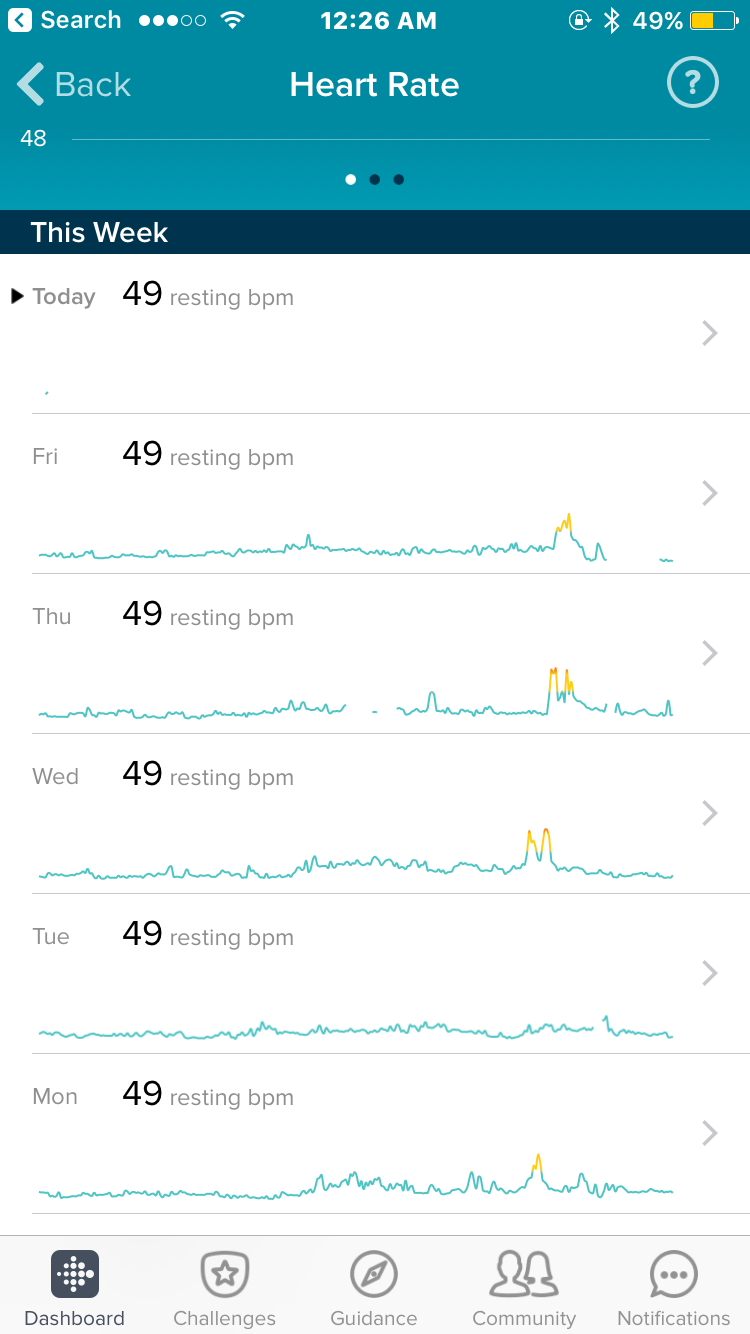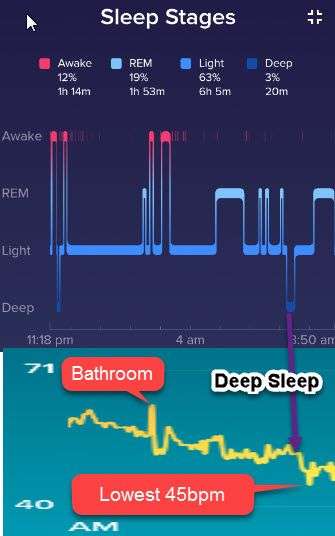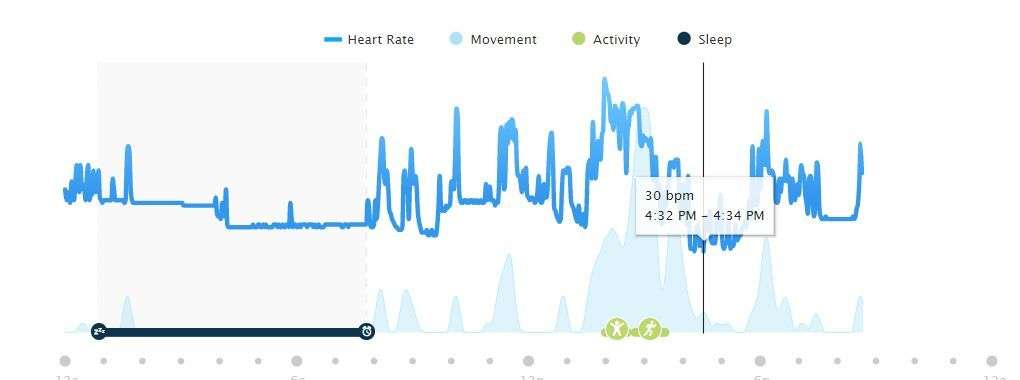Does Your Heart Have A Maximum Number Of Beats
The maximum number of lifetime heartbeats for humans is about 3 billion. But you wont die when you reach a set number of heartbeats. Heartbeats, however, are a marker of your metabolic rate. The faster your metabolic rate , the shorter your lifespan.
For example:
The total number of heartbeats per lifetime is amazingly similar across all mammals. For example, a mouse has a heart rate of 500 to 600 beats per minute but lives less than two years. At the other extreme, a Galápagos tortoise has a heart rate of about six beats per minute and has a life expectancy of 177 years.
Do the math and the heart of a mouse beats 100 times faster than that of a tortoise. But a tortoise lives 100 times longer than a mouse. Humans, however, have about 60 bpm and have about 3 billion heartbeats per lifetime.
What You Can Do
You should always aim to take good care of your heart. This includes doing things like exercising regularly, eating a heart-healthy diet, and maintaining a healthy weight.
Additionally, you should plan to visit your doctor regularly for physicals. Not only is it good practice, but it can also help with early detection of things like high cholesterol or blood pressure abnormalities.
If you already have heart disease, you should carefully monitor your condition and stick to your treatment plan. Take all medications as instructed by your doctor. Be sure to promptly report any new or worsening symptoms.
Some additional preventative health tips to help keep your heart healthy and happy include:
- Find ways to reduce stress. Examples of ways to do this can include things like yoga or meditation.
- Limit your caffeine intake. Using too much caffeine can lead to increases in heart rate.
- Moderate your drinking. Women and men over 65 should only have one drink per day. Men under 65 should only have two drinks per day.
- Quit smoking. Smoking increases your heart rate and quitting can help bring it back down.
- Be aware of medication side effects. Some medications can affect your heart rate. Always be aware of possible side effects before taking a medication.
Your heart is a muscular organ that works to pump oxygen-rich blood and nutrients to the tissues of your body. The muscles of your heart contract and relax to push blood through your blood vessels.
Resting Heart Rate Chart By Age And Gender
A resting heart rate chart shows the normal range for resting heart rate by age and physical condition. Athletes, those who are physically active, tend to have a lower RHR than those who are less active.
The average heart rate generally increases with age. But many factors determine your heart rate at any moment. These factors include the time of day, your activity level, and your stress level.
Also Check: Does Acetaminophen Affect Blood Pressure
Understanding A Slow Heart Rate
It’s common to experience a slow heart rate as you get older, but it’s also something that your doctor needs to monitor. Find out what a slow heart rate means for your health, and when it’s time to seek treatment.
Its common for everyones heart beat rate to slow down at rest, but some people have a chronically slow heart rate that causes symptoms such as fatigue and lightheadedness.
This condition is called bradycardia, and its more common as you age. Mild cases of bradycardia dont have symptoms, but in severe cases it can cause chest pain, shortness of breath, and may even lead to cardiac arrest.
Are you doing everything you can to manage your heart condition? Find out with our interactive checkup.
A normal heart beat rate is between 60 and 100 beats a minute, says Joshua D. Moss, MD, a cardiologist at the Heart Rhythm Center at the University of Chicago Medical Center. Bradycardia is defined as having a heart rate of less than 60 beats a minute. In reality, you can have periods when your heart beat rate goes below 60 and not have bradycardia, Dr. Moss says. It can happen when youre sleeping, or it can occur in highly conditioned athletes when theyre at rest.
How Bradycardia Is Detected
You may be prompted to find out if you have a slow heart rate if you have certain symptoms. However, some people with the condition dont have any symptoms.
What Causes Bradycardia
How Bradycardia Is Treated
What Is Bradycardia How To Know If Your Heart Rate Is Too Low

- Bradycardia is when your resting heart rate is slower than normal.
- Well-trained athletes can have a resting heart rate as low as 40 or 50 bpm, and when caused by exercise, bradycardia is considered healthy.
- However, for others with a resting heart rate this low, bradycardia can be dangerous and should be checked out by a doctor.
- This article was reviewed by John Osborne, MD, PhD, and the Director of Cardiology for Dallas-based State of the Heart Cardiology.
- This story is part of Insider’s guide to Heart Disease.
Bradycardia, or a heart rate that is too slow, can be a serious condition, especially if the heart is not pumping enough oxygen-rich blood throughout the body.
Here’s what medical experts consider to be a low heart rate, how to know if you have bradycardia, and the most common ways to treat it.
You May Like: Can Tylenol Cause Heart Palpitations
What Can You Do At Home For Bradycardia
Bradycardia is often the result of another heart condition, so taking steps to improve your heart health will usually improve your overall health. The best steps you can take are to:
- Having a heart-healthy eating plan that includes vegetables, fruits, nuts, beans, lean meat, fish, and whole grains. Limit alcohol, sodium, and sugar.
- Being active on most, if not all, days of the week. Your doctor can tell you what level of exercise is safe for you.
- Losing weight if you need to, and staying at a healthy weight.
- Not smoking.
- Managing other health problems, such as high blood pressure, high cholesterol, and diabetes.
Get emergency help if you fainted or if you have symptoms of a heart attack or have severe shortness of breath. Call your doctor right away if your heart rate is slower than usual, you feel like you might pass out, or you notice increased shortness of breath.
Pacemakers
Most people who get pacemakers lead normal, active lives. You will need to avoid things that have strong magnetic and electrical fields. These can keep your device from working right. But most electronic equipment and appliances are safe to use.
Your doctor will check your pacemaker regularly. Call your doctor right away if you have symptoms that could mean your device isn’t working right, such as:
- Your heartbeat is very fast or slow, skipping, or fluttering.
- You feel dizzy, light-headed, or like you might faint.
- You have shortness of breath that is new or getting worse.
What Is Resting Heart Rate
Your resting heart rate is how many times your heart beats in one minute while youre at rest. Its both a gauge of your heart health and a biomarker of aging.
RHR changes as you age and varies from person to person. Its important to know your RHR as it can help you assess your heart health over time. Being aware of changes in your RHR can help you uncover a heart condition early.
Resting Heart Rate Versus HRV and Blood Pressure
Resting heart rate, heart rate variability, and blood pressure are all important measures of heart health.
- Resting heart rate is the number of times your heart beats per minute.
- Heart rate variability is a measure of the variation in the time between consecutive heartbeats.
- Blood pressure is the force of blood flowing through your blood vessels .
Read Also: Can Antihistamines Cause Heart Palpitations
How Slow Is Too Slow
Doctors consider a heart rate below 60 beats per minute as low, Dr. Baez-Escudero says.
If you have bradycardia, youll have a sustained heart rate below 60 even when youre awake and active. A normal range is from 60 to 100 beats-per-minute while awake. The heart rate can also slow down normally while we are asleep to 40 to 60 beats a minute.
Not Having Enough Sex
This one’s easy. A review of research published in the American Journal of Cardiology found that having sex once a month or less increases your risk of cardiovascular disease. Although erectile dysfunction can be an indicator of heart disease, this review found an association between low sexual activity and heart disease independent of ED.
The Rx: Get down to it.
Recommended Reading: Does Tylenol Reduce Blood Pressure
Bradycardia : What You Need To Know
If your heart beats fewer than 60 times a minute, it is said to be slower than normal.
Bradycardia means that your heart beats very slowly. A slow heart rate can be normal and healthy for example, many fit people and young adults have a slow heart rate because the organ is so fit and strong and for most people, a heart rate of between 60 to 90 beats a minute while at rest is considered normal. If your heart beats fewer than 60 times a minute, it is said to be slower than normal.
Is A Resting Heart Rate Of 37 Beats Per Minute Okay
Ask U.S. doctors your own question and get educational, text answers â it’s anonymous and free!
Ask U.S. doctors your own question and get educational, text answers â it’s anonymous and free!
HealthTap doctors are based in the U.S., board certified, and available by text or video.
Similar questions
Also Check: Does Ibs Cause Heart Palpitations
Low Rates In Active Bodies
People who are very active, including athletes, tend to have naturally lower resting pulse rates –even lower than 60. This is a reflection of a strong, efficient heart muscle that doesn’t need to work as hard to do its job in maintaining a steady beat. So a low heart rate, in an absence of symptoms, doesn’t necessarily signal a dangerous condition.
You Have Uncontrolled Diabetes

The risk of developing Type 2 diabetes increases dramatically over age 40, so much that the American Diabetes Association recommends a regular diabetes screening for all adults over 45. Diabetes causes sugars to build up in the blood over time, that damages arteries and can lead to cardiovascular disease.
The Rx: Get screened during your annual physical. If you’re on medication for your diabetes, make sure you’re compliant with dosages and monitoring.
Also Check: Can Ibs Cause Heart Palpitations
What Is Considered Severe Bradycardia
When a Slowed Heart Rate Means Serious Trouble In medical textbooks, bradycardia is usually defined as a resting heart rate that is below 60 beats per minute. However, many healthy people have a resting heart rate between 50-60 beats per minute, particularly athletes or sleeping people.
What Are Heart Palpitations
A heart palpitation is when you suddenly become aware of your heart beating, usually in an irregular way. Sometimes you can feel it in your ears or your chest when youre lying down. Your heart beat may feel:
- too fast or slow
- like its fluttering
- like its thudding, or pounding.
It is not unusual to feel heart palpitations occasionally and mostly they are harmless. However if youre experiencing them on a regular basis, see your doctor.
You May Like: Heart Attack Grill Blair River
Being Sick With The Flu
Getting the flu sucks in so many ways. But you might not know it can seriously impact your heart health. According to a 2018 study published in The New England Journal of Medicine, during those first seven days after influenza has been confirmed, you are much more prone to having a heart attack due to your compromised immune system.
The Rx: Get the flu shot! It will not only reduce your chances of getting sick, but keep your downtime to a minimum.
What Is A Normal Resting Heart Rate
A normal resting heart rate for adults is between 60 beats per minute and 100 bpm. An abnormal pulse rate below 60 bpm or above 100 bpm could increase your risk of cardiovascular disease, stroke, or early death.
Normal Resting Heart Rate for Women
The normal resting heart rate for adult women is similar for men, between 60 bpm and 100 bpm. Age and activity level are more important factors for heart rate.
Studies show that having high resting heart rate increases your risk even after controlling for other factors such as physical fitness, blood pressure, and lipid levels.
Is a resting heart rate of 80 bad? A bpm of 80 is still within the normal range, but over 90 can be dangerous.
For example:
One study tested the resting heart rate of about 3,000 men over 16 years. The study found that, after accounting for other risk factors, men with a resting heart rate over 90 bpm were three times more likely to die than the men with the lowest RHR.
Further, an increase in heart rate over time is associated with an increased risk of death from heart disease and all-cause mortality.
Is A Low Resting Heart Rate Good Or Dangerous?
At the other extreme, one study found that having a low resting heart rate is a risk factor for atrial fibrillation in athletes.
Having a heart rate below 60 bpm doesnt mean that youre not healthy. For example, a low RHR could be the result of taking a drug such as a beta-blocker. Moreover, athletes generally have lower heart rates.
Read Also: How Does Heart Rate Affect Blood Pressure
Understanding Your Heart Rate By The Numbers
You can measure your own heart rate. First, find your heart rate by holding a finger to the radial artery at the wrist. Then, count the number of beats per minute while youre resting.
Other places your heart rate can be measured are at the neck , the groin , and the feet .
Here are some numbers to keep in mind:
How To Lower Resting Heart Rate
Don’t Miss: Can Ibs Cause Heart Palpitations
How Is It Treated
How bradycardia is treated depends on what is causing it. Treatment also depends on the symptoms. If bradycardia doesn’t cause symptoms, it may not be treated. You and your doctor can decide what treatment is right for you.
- If damage to the heart’s electrical system causes your heart to beat too slowly, you will probably need to have a pacemaker. A pacemaker is an implanted device that helps correct the slow heart rate.
- If another medical problem, such as hypothyroidism or an electrolyte imbalance, is causing a slow heart rate, treating that problem may cure the bradycardia.
- If a medicine is causing your heart to beat too slowly, your doctor may adjust the dose or prescribe a different medicine.
The goal of treatment is to raise your heart rate and relieve symptoms. For certain types of bradycardia, treatment may help prevent serious problems. These problems include fainting, injuries from fainting, and even death.
How Are Arrhythmias Diagnosed

Arrhythmias can be diagnosed in several ways. The doctor will use a person’s medical history information, along with a physical examination, to begin the evaluation. If an arrhythmia is suspected, the doctor will probably recommend an ECG/EKG to measure the heart’s electrical activity.
There’s nothing painful about an ECG/EKG it’s just a procedure where a series of electrodes are attached to the skin with sticky papers. The electrodes have wires attached to them, which connect to the EKG machine.
The electrical signals from the heart are then briefly recorded, usually for just 10 seconds. This information is sent to a computer, where it’s interpreted and drawn as a graph.
A doctor might recommend these types of ECG/EKG tests:
P
You May Like: Does Tylenol Increase Heart Rate
Legs Up The Wall To Reduce Resting Heart Rate
The legs up the wall pose is a therapeutic yoga pose that helps your body and mind relax. To do the Viparita Karani pose:
Try to stay in this pose for 5 minutes. It doesnt need to be perfect. Even having your legs above your heart works if youre relaxed.
Viparita Karani improves circulation as gravity helps blood flow from your legs back to your heart. Because your heart doesnt need to work as hard, your heart rate lowers.
Eating Too Much Saturated Fat
There’s been some confusion around fats and cholesterol and heart health in recent years, but the latest science is this: According to the American Heart Association, eating foods high in saturated fat raises LDL cholesterol in your blood, which increases your risk of heart attack and stroke. What foods are high in sat fat? Red meat, chicken with skin, butter and cheese.
The Rx: For good heart health, the AHA recommends that you consume only 13 grams of saturated fat per day. Focus your diet on lean protein and as many colorful fruits and vegetables as possible.
Also Check: Esophagus Palpitations
